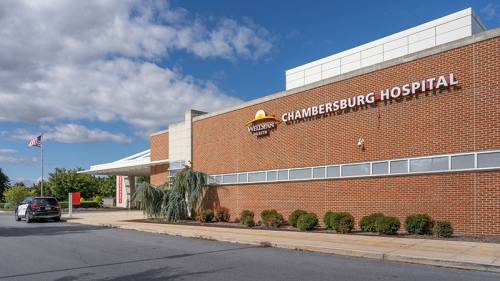About Northumberland County Behavioral Health
Located in Sunbury, Pennsylvania, Northumberland County Behavioral Health is a publicly funded facility that provides a large range of addiction and mental health services for clients.
Their level of care is limited to outpatient treatment, but they can help you recover if you’re struggling with a serious mental health issue or if you have any co-occurring conditions.
Outpatient Care
I like that they have certain services that can help you focus on recovery, like case management, early intervention for children, and behavioral health support. They help youth and families through their CASSP program. It’s also nice to see that they offer 24/7 mobile crisis services if you’re dealing with a mental health emergency.
They customize treatment plans to meet individual needs. If they can’t provide the support you need in their office then they’ll help you connect with the right resources within the community.
Broad Net for Help
They work with a broad population including veterans, LGBTQ+ clients, older adults, folks with co-occurring disorders, people involved with the courts, and more. Payment is flexible, with Medicaid and self-pay options, and they offer assistance for those who can’t afford care.
Beautiful Outdoors in Sunbury
The location in Sunbury is surrounded by some calming outdoor spaces like Shikellamy State Park and the Riverfront Park, which could be helpful for clients trying to reconnect with routine or stability during recovery. While this isn’t a rehab facility in the typical sense, they’re a solid public resource for mental health and behavioral support in the area.
Rehab Score
Gallery


Other Forms of Payment
Medicaid is a state based program that helps lower-income individuals and families pay for healthcare. Medicaid covers addiction treatment so those enrolled can use their coverage to pay for rehab. When a program accepts Medicaid the client often pays very little or nothing out of their own pocket.
Self-pay involves paying for treatment out of your own pocket. You can use savings or credit, get a personal loan, or receive help from family and friends to fund your treatment. If you don't have insurance or your insurance plan doesn't cover a specific program, self-pay can help ensure you still get the care you need.
Addiction Treatments
Levels of Care
Outpatient Programs (OP) are for those seeking mental rehab or drug rehab, but who also stay at home every night. The main difference between outpatient treatment (OP) and intensive outpatient treatment (IOP) lies in the amount of hours the patient spends at the facility. Most of the time an outpatient program is designed for someone who has completed an inpatient stay and is looking to continue their growth in recovery. Outpatient is not meant to be the starting point, it is commonly referred to as aftercare.
Treatments
Many of those suffering from addiction also suffer from mental or emotional illnesses like schizophrenia, bipolar disorder, depression, or anxiety disorders. Rehab and other substance abuse facilities treating those with a dual diagnosis or co-occurring disorder administer psychiatric treatment to address the person's mental health issue in addition to drug and alcohol rehabilitation.
Mental health rehabs focus on helping individuals recover from mental illnesses like bipolar disorder, clinical depression, anxiety disorders, schizophrenia, and more. Mental health professionals at these facilities are trained to understand and treat mental health issues, both in individual and group settings.
Programs
Adult rehab programs include therapies tailored to each client's specific needs, goals, and recovery progress. They are tailored to the specific challenges adult clients may face, including family and work pressures and commitments. From inpatient and residential treatment to various levels of outpatient services, there are many options available. Some facilities also help adults work through co-occurring conditions, like anxiety, that can accompany addiction.
Young adulthood can be an exciting, yet difficult, time of transition. Individuals in their late teens to mid-20s face unique stressors related to school, jobs, families, and social circles, which can lead to a rise in substance use. Rehab centers with dedicated young adult programs will include activities and amenities that cater to this age group, with an emphasis on specialized counseling, peer socialization, and ongoing aftercare.
Clinical Services
Whether a marriage or other committed relationship, an intimate partnership is one of the most important aspects of a person's life. Drug and alcohol addiction affects both members of a couple in deep and meaningful ways, as does rehab and recovery. Couples therapy and other couples-focused treatment programs are significant parts of exploring triggers of addiction, as well as learning how to build healthy patterns to support ongoing sobriety.
Research clearly demonstrates that recovery is far more successful and sustainable when loved ones like family members participate in rehab and substance abuse treatment. Genetic factors may be at play when it comes to drug and alcohol addiction, as well as mental health issues. Family dynamics often play a critical role in addiction triggers, and if properly educated, family members can be a strong source of support when it comes to rehabilitation.
Group therapy is any therapeutic work that happens in a group (not one-on-one). There are a number of different group therapy modalities, including support groups, experiential therapy, psycho-education, and more. Group therapy involves treatment as well as processing interaction between group members.
In individual therapy, a patient meets one-on-one with a trained psychologist or counselor. Therapy is a pivotal part of effective substance abuse treatment, as it often covers root causes of addiction, including challenges faced by the patient in their social, family, and work/school life.
Staff
Samuel J. Schiccatano
Chairman
Joseph M. Klebon
Vice Chairman
Meghan K. Beck
Commissioner
Contact Information
217 North Center street
Sunbury, PA 17801